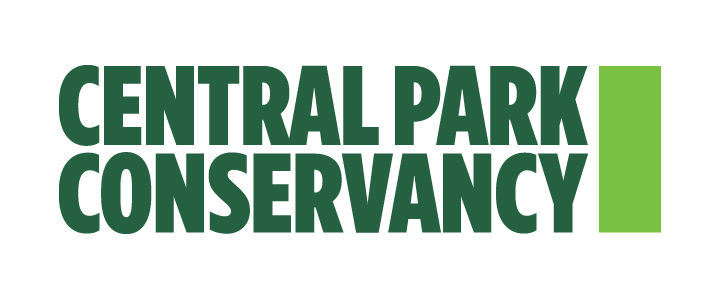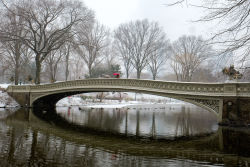Central Park
Charles Stover Bench
The Charles Stover Memorial Bench stands amidst the floral splendor of Central Park’s Shakespeare Garden, at about 80th Street, west of Belvedere Castle. Dedicated in 1936, the bench honors Charles Bunstein Stover (1861-1929), a New Yorker who left a lasting legacy to his adopted city.
Born in Riegelsville, Pennsylvania, on July 14, 1861, Stover graduated from Lafayette College in 1881 and was trained as a Presbyterian minister at the Union Theological Seminary, from which he received his degree in 1884. He also studied briefly at the University of Berlin, before settling in Manhattan’s Lower East Side.
While a theology student, Stover had traveled abroad and observed social workers engaged at Toynbee Hall in London, England. This experience, coupled with his concern for the human conditions in his neighborhood, caused him, along with Dr. Stanton Coit, to organize the Neighborhood Guild in the basement of a tenement on Forsyth Street. Founded in 1886, the organization was said to be the first “settlement house” in the United States. Stover enlisted the assistance of university students and graduates in bettering the life of the community’s children, and the organization later became known as the University Settlement, which provides social services to this day.
In 1898 Stover and Lillian Wald (1867–1940), director of the nearby Henry Street Settlement, founded the Outdoor Recreation League (ORL), whose mission was to provide play spaces and organize games for the children of the densely populated Lower East Side. The ORL opened nine privately sponsored playgrounds and advocated that the City itself build and operate playgrounds. In 1902 the City assumed the operation of the ORL playgrounds, and in 1903 opened what is presumed to be the first municipally built playground in the nation, Seward Park in Manhattan’s Lower East Side. For his leadership Stover was dubbed “the Father of Seward Park.”
Stover was appointed Manhattan Parks Commissioner in 1910 and established the first Bureau of Recreation. During his tenure he upgraded and built dozens of new playground sites and organized numerous cultural and recreational programs for children, from track meets to folk dancing.
Stover’s enlightened stewardship and activities as Parks Commissioner appear to have taken a toll on his physical and mental health, however. In 1913, informing his staff that he was going out for lunch, he disappeared for 39 days. After a nationwide search, he resurfaced in the Midwest. Mayor Ardolph L. Kline (1858-1930) had Stover suspended, and he subsequently mailed in his resignation from Cincinnati. On January 28, 1914, he returned to the University Settlement; the New York Times later reported that Stover said he had “made an exhaustive study of parks and municipal conditions” and that he had visited “practically every important city in the South.”
Stover spent the remainder of his life developing a summer camp at Beacon, New York, operated by the University Settlement. He inscribed a garden gateway at the camp with the motto, “One’s self must garden and gardener be.” Stover died at the University Settlement on April 25, 1929, at the age of 68.
A group of prominent citizens, concerned with preserving the memory of Stover and his deeds, formed the Charles B. Stover Memorial Asssociation and commissioned this monument through private donations. The bench is not of the standard wrought iron or cast-concrete variety, but a curved 20-foot exedra of Deer Isle granite. On November 5, 1936, Mayor Fiorello H. La Guardia (1882–1947), Parks Commissioner Robert Moses (1888–1981), Dr. John H. Finley (1863–1940), the associate editor of the New York Times, and other dignitaries gathered in the Shakespeare Garden to dedicate the memorial.
The bench is situated on a natural rock outcropping. At the time of the unveiling, it was noted that the location was apt, since during Stover’s time as Parks Commissioner, he had changed this place “from a dilapidated stone mass covered with poison ivy to a rock garden with an artificial stream of water and pools of water lilies.”
Check out your park's Vital Signs
Clean & Safe
Green & Resilient
Empowered & Engaged Users
Share your feedback or learn more about how this park is part of a
Vital Park System
Contacts
Central Park Information: (212) 310-6600
Central Park Information (for the Hearing Impaired): (800) 281-5722
Belvedere Castle, The Henry Luce Nature Observatory: (212) 772-0210
The Charles A. Dana Discovery Center: (212) 860-1370
The Dairy Visitor Center and Gift Shop: (212) 794-6564
North Meadow Recreation Center: (212) 348-4867
Loeb Boathouse (Bike rentals, boat rentals & gondolas): (212) 517-2233
Carousel: (212) 879-0244
Fishing at Harlem Meer (Catch & Release): (212) 860-1370
Harlem Meer Performance Festival: (212) 860-1370
Horseback Riding - Claremont Stables: (212) 724-5100
Metropolitan Opera (Performances on the Great Lawn): (212) 362-6000
New York Philharmonic (Performances on the Great Lawn): (212) 875-5709
Shakespeare in the Park - The Public Theater at the Delacorte Theater: (212) 539-8655
Central Park SummerStage: (212) 360-2777
Swedish Cottage Marionette Theater: (212) 988-9093
Tennis: (212) 280-0205
Weddings, Ceremonies and Photography at the Conservatory Garden: (212) 360-2766
Wildlife Center & Tisch Children's Zoo: (212) 439-6500











